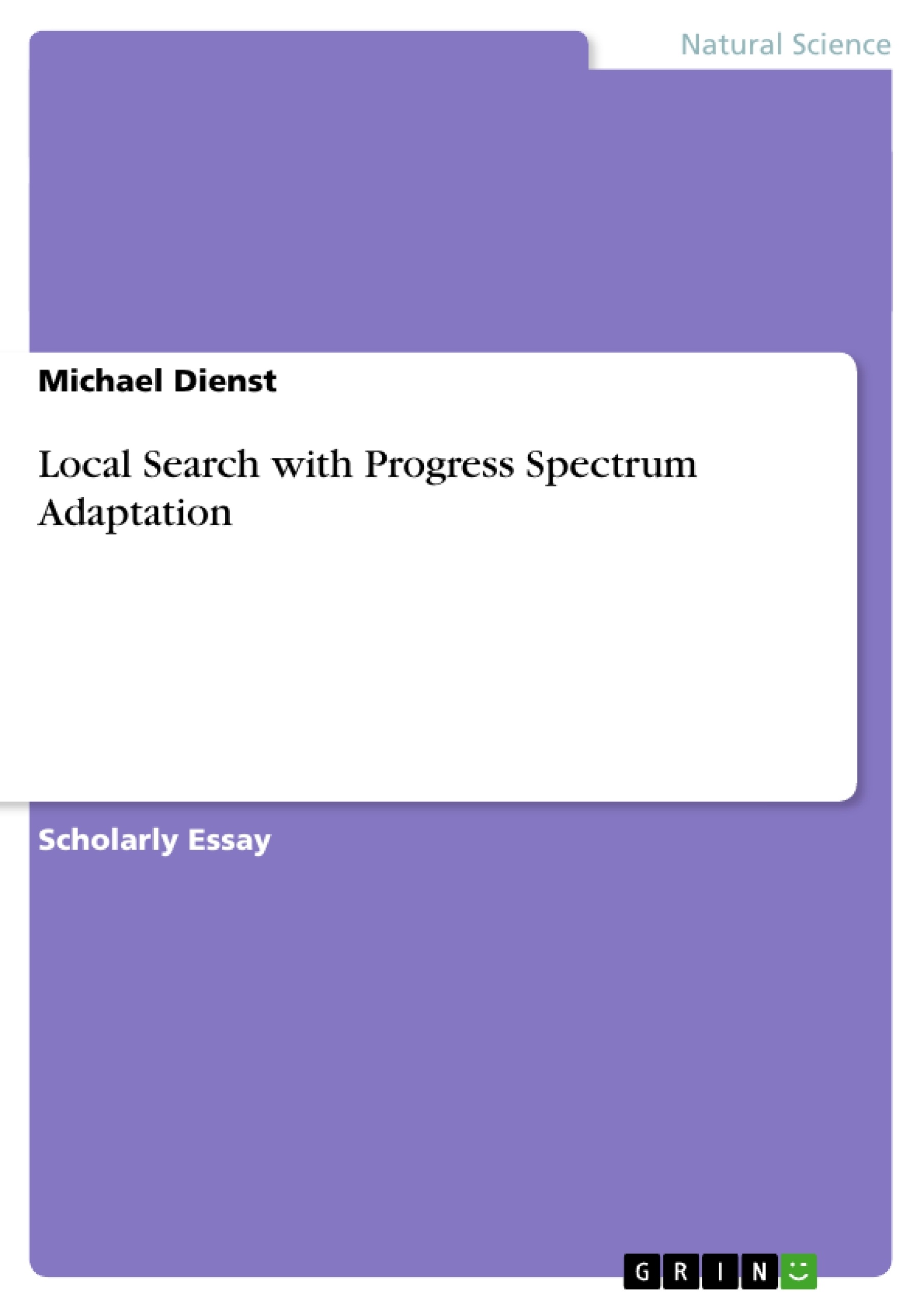Search algorithms with intergenerational information utilization are considered efficient optimization strategies. Core mechanism is the adaptation of process parameters. However, the costs of data and declaration of traditional strategies are high. With the transfer of adaptation processes in the spectral range of the object variables, a very elegant and efficient algorithm appears. The paper explores the convergence behavior of processing simple but high-dimensional quality functions.
Inhaltsverzeichnis (Table of Contents)
- INTRO
- FSA
- Model features and simulation experiments
Zielsetzung und Themenschwerpunkte (Objectives and Key Themes)
The paper focuses on exploring the convergence behavior of a local search algorithm that utilizes intergenerational information in the form of a "Progress Spectrum Adaptation" (FSA). The goal is to demonstrate the effectiveness of FSA in optimizing complex quality functions, particularly in high-dimensional problems.
- Convergence behavior of local search algorithms
- Intergenerational information utilization in optimization
- Progress Spectrum Adaptation (FSA) as an efficient optimization strategy
- Comparison of FSA with classical evolution strategies
- Application of FSA in high-dimensional optimization problems
Zusammenfassung der Kapitel (Chapter Summaries)
- INTRO: This section introduces the concept of Evolutionary Algorithms (EA) as local search methods that employ principles of biological evolution for solving numerical optimization problems. The paper specifically focuses on Evolution Strategies (ES) and highlights the core mechanisms of variation, evaluation, and selection in their process flow.
- FSA: The chapter details a local search algorithm called "Progress Spectrum Adaptation" (FSA). It describes the transformation of data into the spectral domain, its processing, analysis, and compression, and the inverse transformation back to the functional domain of the optimization process. The section explains how FSA leverages the spectral gradient of progress to guide the optimization trajectory.
- Model features and simulation experiments: This section presents the model functions used for optimization experiments. The paper compares the performance of FSA with a classical evolution strategy with global mutational step size control (gES) in optimizing a cubic function with a 100-dimensional object variable vector. The results suggest that FSA exhibits superior performance in the early stage of the optimization campaign.
Schlüsselwörter (Keywords)
The core keywords and focus topics are local search, optimization algorithms, Evolutionary Strategies (ES), Progress Spectrum Adaptation (FSA), intergenerational information utilization, spectral analysis, convergence behavior, high-dimensional optimization, and simulation experiments.
Frequently Asked Questions
What is Progress Spectrum Adaptation (FSA)?
FSA is a local search algorithm that transfers adaptation processes into the spectral range of object variables to improve optimization efficiency.
How does FSA differ from traditional Evolution Strategies (ES)?
Unlike traditional strategies with high data costs, FSA uses intergenerational information in the spectral domain, allowing for a more elegant and efficient parameter adaptation.
What are "object variables" in this context?
Object variables are the parameters of a quality function that the algorithm aims to optimize, often in high-dimensional spaces.
What were the results of the simulation experiments?
Simulations on high-dimensional functions showed that FSA exhibits superior convergence behavior, especially in the early stages of the optimization process, compared to global mutational step size control.
Why is spectral domain processing beneficial?
Processing data in the spectral domain allows for better analysis and compression of information, guiding the optimization trajectory more effectively through the "spectral gradient of progress."
- Quote paper
- Dipl.-Ing. Michael Dienst (Author), 2012, Local Search with Progress Spectrum Adaptation, Munich, GRIN Verlag, https://www.grin.com/document/199630



